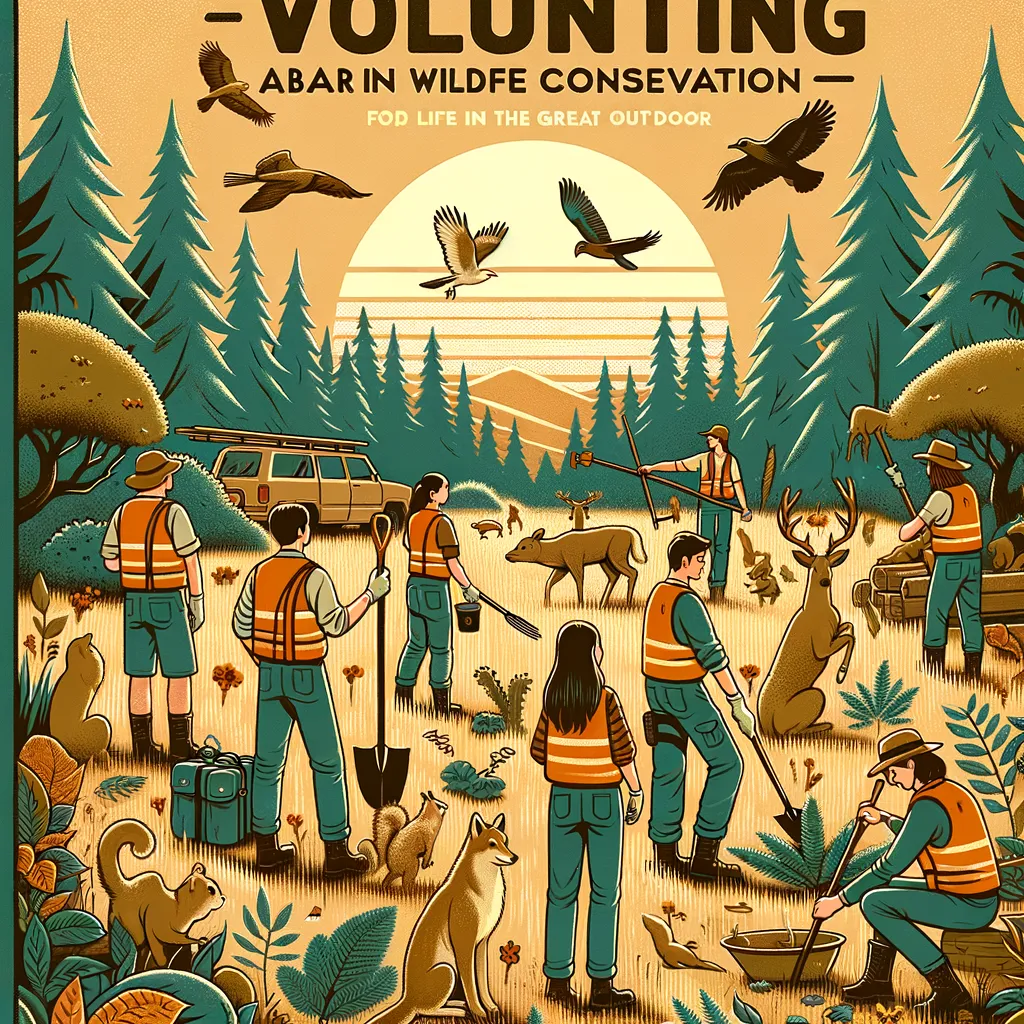A Guide to Volunteering Abroad in Wildlife Conservation for Parents
Thinking about embarking on an adventure that not only satisfies your wanderlust but also contributes to the planet? Volunteering abroad in wildlife conservation could be the perfect fit for your family. This guide is designed to help parents navigate the wonderful world of conservation efforts, ensuring you make informed and impactful decisions for a family trip that makes a difference.
Exploring the great Outdoors and contributing to its preservation has never been more crucial. As families look for meaningful ways to spend time together, volunteering in wildlife conservation abroad presents an incredible opportunity to educate, inspire, and make tangible contributions to environmental preservation.
For a Great Read on Camping, consider exploring resources that offer insights into sustainable travel and outdoor adventures, further enriching your volunteering journey.
Understanding Wildlife Conservation Volunteering
Before you pack your bags and head out, it’s important to understand what wildlife conservation volunteering entails. It’s all about contributing your time and skills to help protect, preserve, or rehabilitate wildlife and their natural habitats. These programs can range from sea turtle conservation in Costa Rica to elephant sanctuaries in Thailand, offering diverse experiences for every family member’s interest.
Choosing the Right Program for Your Family
Choosing the right volunteer program is crucial. It’s important to select a project that aligns with your family’s interests, your time availability, and the age appropriateness for your children. Research organizations thoroughly to ensure they operate ethically and contribute positively to conservation efforts. Look for reviews, ask for references, and connect with past volunteers to gather insights.
Preparing Your Family for the Trip
Preparation is key to a successful volunteering experience. Discuss as a family what the trip will entail, focusing on its purpose and the impact you hope to achieve. Educating your children about the importance of conservation and the role they’ll play can help set meaningful expectations for the trip.
As you get ready, consider the practical aspects of your adventure. From vaccinations and travel insurance to packing essentials and local customs, ensuring everything is in order before you go can make a big difference in the quality of your experience.
Stay tuned for more insights on making the most of your volunteering journey abroad, including understanding cultural nuances, ensuring your family’s safety, and maximizing your impact on local conservation efforts.

5 Essential Preparations for Parents: Volunteering Abroad in Wildlife Conservation
Volunteering abroad in wildlife conservation is an enriching experience for families, blending the thrill of travel with the fulfillment of contributing to a noble cause. As you embark on this incredible journey with your loved ones, thorough preparation is paramount to ensure the experience is both impactful and safe. Here, we delve into five crucial steps every parent should consider when planning to volunteer with their family in wildlife conservation projects around the globe.
1. Comprehensive Research on Projects
Start with an in-depth exploration of various wildlife conservation projects that align with your family’s interests and values. Not all programs are created equal, and finding one that matches your family’s passion is crucial. Consider the type of wildlife and conservation efforts involved, the destination’s climate, and the physical demands of the project. Websites of reputable conservation organizations and forums can provide valuable information and reviews to help you choose wisely.
2. Engage in Pre-trip Conservation Education
Preparing your children for what to expect and the importance of their work is vital for a rewarding experience. Engage in activities that educate about conservation, such as watching documentaries, reading books, or even visiting local wildlife reserves. These pre-trip educational efforts will enrich your family’s understanding and appreciation for the work you’ll be doing, making the experience much more meaningful.
3. Health and Safety Measures
Your family’s health and safety are paramount. Visit a travel clinic for advice on necessary vaccinations and medications based on your destination. Discuss health insurance coverage that includes medical care abroad and plan for any dietary needs or restrictions. Moreover, understand the physical requirements of the volunteer work to ensure every family member is capable and equipped to participate safely.
4. Cultural Sensitivity and Respect
Learning about the local culture, customs, and language of your destination country is a sign of respect and will enhance your volunteering experience. Basic language skills can go a long way in building rapport with local communities and fellow conservationists. Teach your family the importance of cultural sensitivity, emphasizing open-mindedness and the willingness to learn from others.
5. Packing Essentials for the Conservation Adventure
Packing for a volunteer trip requires careful consideration to include all essentials while being mindful of the limitations of travel. Durable, climate-appropriate clothing, reusable water bottles, first aid kits, and any specific gear recommended by the organization are must-haves. Also, remember to pack educational materials and games for family downtime. Keep luggage to a minimum to ease travel and contribute to a more sustainable trip.
Embracing these five preparations will pave the way for a fulfilling and impactful wildlife conservation volunteering experience for your family. Beyond offering an unforgettable adventure, it teaches invaluable lessons on responsibility, conservation, and global citizenship. Start planning your journey today, and prepare to make memories that will last a lifetime while contributing positively to our planet’s well-being.
Disclaimer
The articles available via our website provide general information only and we strongly urge readers to exercise caution and conduct their own thorough research and fact-checking. The information presented should not be taken as absolute truth, and, to the maximum extent permitted by law, we will not be held liable for any inaccuracies or errors in the content. It is essential for individuals to independently verify and validate the information before making any decisions or taking any actions based on the articles.




